 Petzlover
Petzlover Ariegeois is originated from France but German Coolie is originated from Australia. Both Ariegeois and German Coolie are having almost same height. Both Ariegeois and German Coolie are having almost same weight. Ariegeois may live 4 years less than German Coolie. Both Ariegeois and German Coolie has same litter size. Both Ariegeois and German Coolie requires Low Maintenance.
Ariegeois is originated from France but German Coolie is originated from Australia. Both Ariegeois and German Coolie are having almost same height. Both Ariegeois and German Coolie are having almost same weight. Ariegeois may live 4 years less than German Coolie. Both Ariegeois and German Coolie has same litter size. Both Ariegeois and German Coolie requires Low Maintenance.
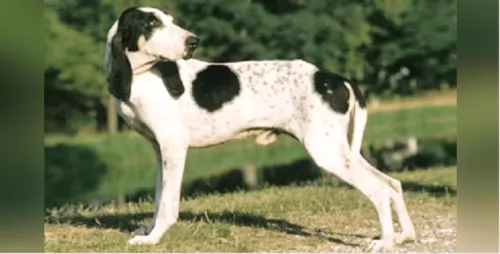 The Ariegeois is a fairly new breed, believed to have originated in France in 1912. As a scent hound, it is a blend of 3 French scent hounds - Grand Gascon-Saintongeois, Grand bleu de Gascon and the Briquet.
The Ariegeois is a fairly new breed, believed to have originated in France in 1912. As a scent hound, it is a blend of 3 French scent hounds - Grand Gascon-Saintongeois, Grand bleu de Gascon and the Briquet.
Just to show you how ancient these breeds are, the Grand bleu were thought to have been brought to France by an ancient civilization, the Phoenicians, who traded wares and dogs. The Briquet is native to southern France but they have been used as hunting dogs as far back as pre-Roman times.
As the breeds mixed, the Ariegeois came about. A popular pack dog emerged with an excellent sense of smell that would stand the dog in good stead for hunting. Today, while still fairly uncommon beyond French borders, the dog is highly regarded for its extraordinary hunting abilities and his loyal, affectionate nature towards his human companions.
 The German Coolie is misnamed as it is an Australian bred dog and often called the Australian Koolie or Coolie. This Australian breed is more often just called a Coolie. The breed is a typical herding breed and a working dog that needs a job all the time. They have been a favorite of Australians since the late 1800’s when local dogs were bred with British working dogs.
The German Coolie is misnamed as it is an Australian bred dog and often called the Australian Koolie or Coolie. This Australian breed is more often just called a Coolie. The breed is a typical herding breed and a working dog that needs a job all the time. They have been a favorite of Australians since the late 1800’s when local dogs were bred with British working dogs.
Although all Coolie’s are not the same. Within the breed there is a lot of variation. This is because the Coolie was bred individually for different regions in Australia. In a very different writing the Koolie Club of Australia does not define the Coolie breed on confirmation as all other purebred dogs are defined. Instead the Coolie is defined by ability to work. In light of this most Coolie breeders state that the Coolie is a breed and the variations you see among regions are types within the breed.
As a herding dog, the Coolie brought a lot of skill to the Australian farmers and sheep herders. The Coolie will round up the sheep and bring them back to their enclosure at the shepherd’s command. They are upright, silent, working dogs. Not only do they herd sheep they are important at sheering to “cut out” the sheep or assist in the close quarters of lambing.
In Queensland North and New South Wales, the Coolie is medium boned, tall and agile ready to herd cattle over a long stretch of miles. In the Snowy Mountains of New South Wales and the Hunter Valley Region, the Coolie is shorter and thicker in order to be able to get cattle that are lying low out from the gullies and dense bush. The Coolies found in Victoria are the smallest of all.
No matter where they live and work, the Coolie is bred to help the workers there, the farmers, the stockman, and the grazier. All Coolies are adaptable and very agile. They all have a strong willfulness to accomplish what they are asked to do. The ancestors of these various Coolie was the British Collie – a smooth coated, blue merle. This Collie was crossed with the Black and Tan Collie from the Scottish Highlands. It is believed that these are the same Collie breeds that came to Australia to create the Heeler.
The name may come from the German immigrants working in South Australia and unable to pronounce Collie incorrectly they called the dogs German Coolies. There is also a fraction of German breeders who believe that the German Tiger dog was brought to Australia in the 18th century and then when the Collies came they were bred together. Many Coolie breeders have records showing that the breed has been in Australia for at least 160 years. It is also believed that the Border Collie and Kelpie (Blue Heeler) were mixed into the breed at sometime as well.
No bench standard exists for the German Coolie even though there is the Koolie Club of Australia. The mission of the club is to protect, preserve and promote the breed. The Australian Sporting Register was recognizing the Coolies in 2004. They are eligible to participate in the Australian National Kennel Council sanctioned sporting trials. They participate in Queensland, New South Wales and Victoria through the individual states sporting register. Here they participate in herding, jumping, obedience, agility and tracking.
Several other recognitions as a herding breed soon followed. The Australian Shepherd Club of America, the American Herding Breed Association, were followed by recognition from others as well. They are not recognized by the American Kennel Club (AKC).
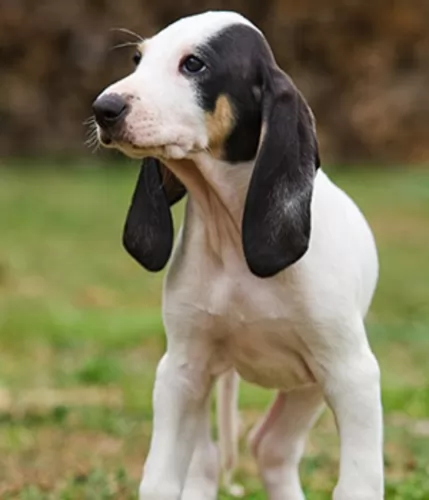 The amicable-looking medium-sized Ariegeois dog, also known as the Ariege Hound, has a lean, muscled body. This dog breed isn’t just suitable as as working breed, but his kind face tells you he has a good temperament and he makes for an affectionate family pet and friend as well.
The amicable-looking medium-sized Ariegeois dog, also known as the Ariege Hound, has a lean, muscled body. This dog breed isn’t just suitable as as working breed, but his kind face tells you he has a good temperament and he makes for an affectionate family pet and friend as well.
The Ariegeois gets along well with children in the family. Gentle and patient, you want to teach your children to also be gentle, patient and kind around this affectionate canine. Early socialization and training, as with any dog breed, will be important for this energetic dog, and training will make him a wonderful family pet.
With their trim, athletic build, deep chest and slightly forward lean similar to that of a Pointer dog, the scenthound’s white coat with black markings is short and smooth.
One of the more noticeable features of the dog is his long ears which are lovely and soft to touch. With his dark brown, soulful eyes, his black nose and slightly curved tail, the Ariegeois has a deep, throaty bark.
 With their strong ancestry among the family of collies and herders, the German Coolie shares the look of collies and shepherds. Even though they differ from region to region and there is no actual standard, they are medium sized dogs with blue or brown eyes or even one of each. The ears are folded over on top when relaxed but they are rigid and straight when he is more alert. The nose is either chocolate or red depending on the color of their coat.
With their strong ancestry among the family of collies and herders, the German Coolie shares the look of collies and shepherds. Even though they differ from region to region and there is no actual standard, they are medium sized dogs with blue or brown eyes or even one of each. The ears are folded over on top when relaxed but they are rigid and straight when he is more alert. The nose is either chocolate or red depending on the color of their coat.
They can have either a long, medium or short coat but most owners want the short coat that is smooth as well. The coat can be one color – red/chocolate or black; Bi – red/white or black/white; Tri – solid black or red with white and brown; Tri merle -merle with white and brown; Merle – red merles and blue merles. Regardless of color, the German Coolie has the look of a collie or German Shepherd.
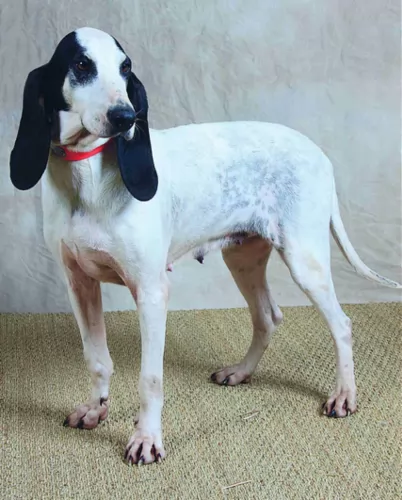 Your wonderful Ariegeois wants to be your lifelong companion, and you can expect all the wonderful characteristics to be evident in this canine if you buy him from a reputable breeder. When you bring him home, make sure he has a warm, dry, comfortable sleeping area, and in exchange for this provision he will be your loyal, devoted friend.
Your wonderful Ariegeois wants to be your lifelong companion, and you can expect all the wonderful characteristics to be evident in this canine if you buy him from a reputable breeder. When you bring him home, make sure he has a warm, dry, comfortable sleeping area, and in exchange for this provision he will be your loyal, devoted friend.
Spayed or Neutered saves you from Unwanted Puppies
If you don’t intend your Ariegeois becoming a parent have your dog spayed or neutered by 6 months of age.
Your Ariegeois is intelligent and easy to train and can be guaranteed to be your best friend and will be your loyal companion through thick and thin. In exchange for this priceless friendship, you need to be a responsible dog owner to ensure his health and happiness.
 Yes, they can be very friendly with children is they are socialized and supervised.
Yes, they can be very friendly with children is they are socialized and supervised.
They have enough stamina to work for 14 hours a day.
They are very adaptable. They can be calm and steady when working a mother and baby lamb and then be able to forcefully move steers, bull, rams or weathers.
The breed is highly intelligent, and their learning ability is excellent because they want to please you.
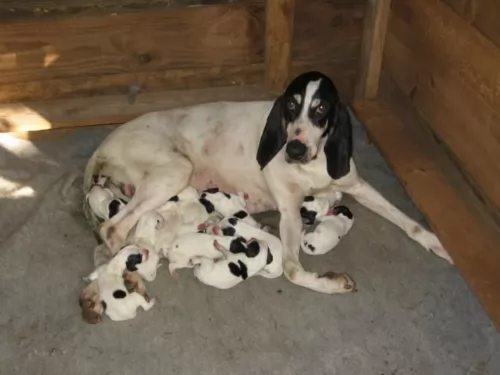 There are a number of illnesses that are common to all dog breeds. Some of the more common dog illnesses are -
There are a number of illnesses that are common to all dog breeds. Some of the more common dog illnesses are -
No Standard Health Problems – Get Puppy Vaccinations
There are no specific health problems linked to the Ariegeois Dog but he will still need to get his regular puppy vaccinations -
 This is a relatively healthy breed without many genetic disorders found in purebreds due to the 160 years they have spent fairly isolated and allowing natural selection to take its course.
This is a relatively healthy breed without many genetic disorders found in purebreds due to the 160 years they have spent fairly isolated and allowing natural selection to take its course.
In Merle dogs there can be deafness and/or blindness. If you breed a solid to a merle you can eliminate that.
These are not inherited but rather acquired due to the immense amount of jumping and running.
Rare but it does occur and can be fatal if not treated
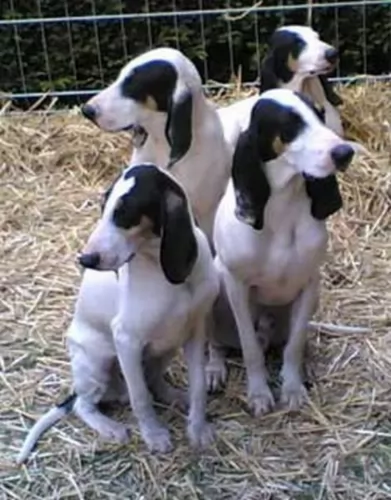 The Ariegeois is a relatively low maintenance dog and his short coat will require a good brush at least once a week. You don’t have to bath him often as this strips natural oils away that make his coat shiny and glossy. Check those long ears and make sure that no leaves, grass and dirt are lodged deep within the ears.
The Ariegeois is a relatively low maintenance dog and his short coat will require a good brush at least once a week. You don’t have to bath him often as this strips natural oils away that make his coat shiny and glossy. Check those long ears and make sure that no leaves, grass and dirt are lodged deep within the ears.
There are thousands of options for dog foods and the first step is to chat to your veterinarian about the best food for your to meet his nutritional needs during each stage of his life. It is difficult to determine diet quality for you dog from the label.
Wet or dry dog food, it is important to have high quality ingredients from a dog food manufacturing company that has the expertise to produce dog food that meets your pet’s nutritional needs. Protein is highly important for your pet and many dog owners make their own dog food. Raw meat is imperative for the health of your dog, but before switching to a raw diet, chat to your veterinarian. Do research on different brands - there are good and bad brands and your pet needs to be protected from false claims. Always make sure your pet has access to fresh, cool, clean drinking water.
Your Ariegeois will need some exercise if you want him to maintain his lean, muscular shape. In order for him to stay in shape and to avoid boredom, take him on walks, throw a ball for him, and your reward will be his bright eyes and wagging tail.
 Break meals into 3 a day feeding a high quality dry puppy food designed for dogs of his size. 11/2 to 2 cups per day.
Break meals into 3 a day feeding a high quality dry puppy food designed for dogs of his size. 11/2 to 2 cups per day.
Break meals into 2 a day feeding a high quality dry adult food designed for dogs of his size.
Traditionally good health. Great energy, intensity and devotion to work and owner.
This is an energetic dog that loves to work and needs to work. Regular routine exercise is needed daily. He needs to be stimulated mentally and physically. Find him a job. Make sure he knows what you want him to do. They work well with a human partner in games such as agility, tracking, flyball and herding. They need a large yard and a lot of play time. They are not couch potatoes and would be unhappy if they were stuck in a house or apartment